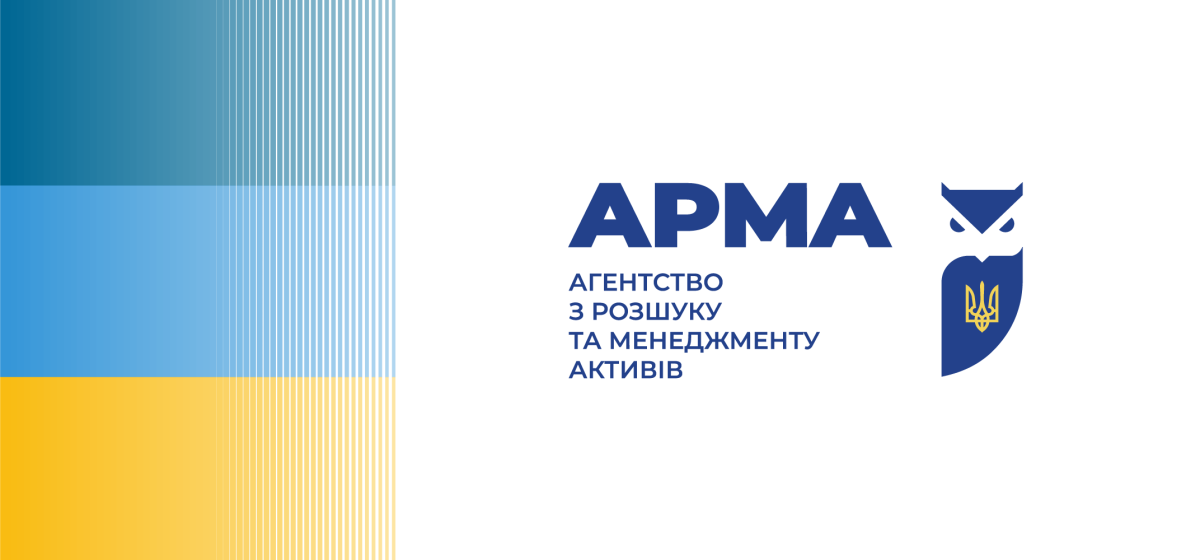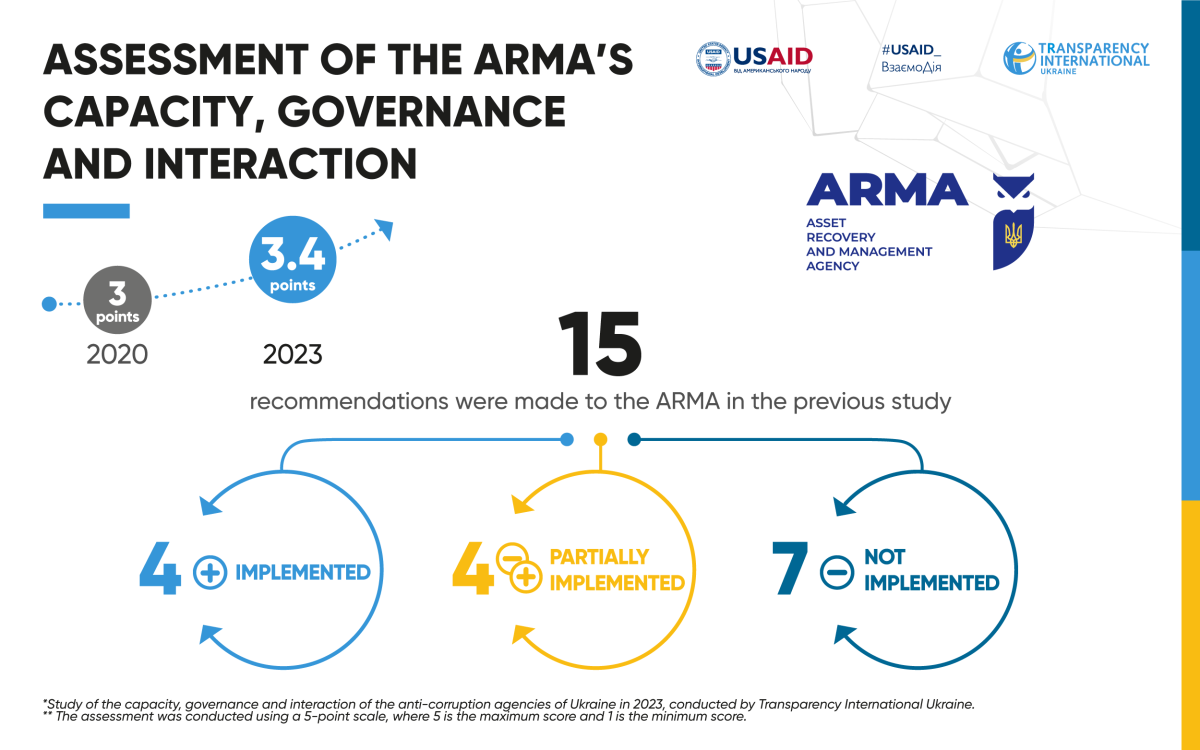

The capacity of the Asset Recovery and Management Agency (the ARMA) was assessed at 3.4 points on a scale from 1 to 5. This is the worst score among the bodies of the anti-corruption ecosystem.
This was published by Transparency International Ukraine in the Study of Capacity, Governance, and Interaction of Agencies That Make Up Ukraine’s Anti-Corruption Infrastructure 2023, conducted with the support of the USAID project “Supporting Anti-Corruption Champion Institutions” (SACCI).
This is the second comprehensive study of the ARMA’s work by TI Ukraine. In the first study of 2020, the National Agency also showed the worst results — then, the ARMA scored a total of 3 points out of 5 possible.
And even despite the growth of 0.4 points recorded over two years, the institution still has many issues, the researchers note.
Even after the competitive recruitment of the Agency’s leader was held, there is doubt that the Agency is truly capable of overcoming the questionable “legacy” of the previous management and establish fruitful cooperation with stakeholders. The legislative framework for the ARMA’s activity and the practice of its implementation also leave something to be desired. Therefore, the Parliament should adopt amendments to the relevant Law on the ARMA, and the Cabinet of Ministers should adopt by-laws that will guide the Agency in its activities.
“Although there has been minor progress with the ARMA’s operation, the additional burden of working with assets of Russian or Belarusian origin placed on the agency following the full-scale invasion, exacerbated the existing issues in its work and highlighted new ones,” explains legal advisor of Transparency International Ukraine Pavlo Demchuk. “We announced a list of changes required by the Agency multiple times, and our study highlighted their urgency once again. If these things are not fixed, management of seized assets will remain an ample opportunity for abuse, full of corruption risks.”
In the previous study, we provided the ARMA with 15 recommendations, of which 4 were completely implemented, 4 partially implemented, and 7 recommendations — not implemented at all. This year, TI Ukraine provided 20 recommendations, of which 5 are priority:
- Ensure sufficient funding for the ARMA’s needs in the State Budget.
- Engage the ARMA in debate in criminal proceedings before the possible seizure and transfer of assets for management.
- Determine a wider list of data for public access in the Unified Register of Seized Assets and maintain the register in a quality manner.
- Provide an adequate regulatory framework for external independent audit of the ARMA’s work.
- Establish interaction with the media and civil society Develop and adopt the Agency’s communication strategy and monitor its implementation.
In general, the HACC obtained the best score in the study at 4.6 points, while the ARMA had the worst result of 3.4 points. Of the 103 recommendations made in the 2020 study, the agencies implemented 23, partially implemented 36, and did not implement 41.
The study covers the period from August 2020 to June 2023.
Anti-corruption agencies, namely the NACP, the NABU, the SAPO, the ARMA, and the HACC, were assessed on a scale from 1 to 5.
The research methodology has been developed taking into account the main approaches of the National Integrity System (NIS), developed and implemented by the international anti-corruption network Transparency International.
The draft study was provided to anti-corruption infrastructure agencies for preliminary perusal, comments, and corrections.
Although there has been minor progress with the ARMA’s operation, the additional burden of working with assets of Russian or Belarusian origin placed on the agency following the full-scale invasion, exacerbated the existing issues in its work and highlighted new ones.
Pavlo Demchuk, legal advisor of Transparency International Ukraine
This research was made possible by the support of the American people through the United States Agency for International Development (USAID) within the SACCI project. The contents of this publication are the sole responsibility of Transparency International Ukraine and do not necessarily reflect the views of USAID or the United States Government.
For reference: The Support to Anti-Corruption Champion Institutions (SACCI) Program in Ukraine is a six-year USAID initiative that has an objective to assist Ukraine to reduce corruption and increase the accountability and transparency of governance in Ukraine. The program seeks to empower key government institutions to fight corruption, build public support for and engagement in anti-corruption efforts, and reduce citizen tolerance to corruption, as well as ensure maximum transparency and accountability of Ukraine’s post-war recovery and reconstruction.







